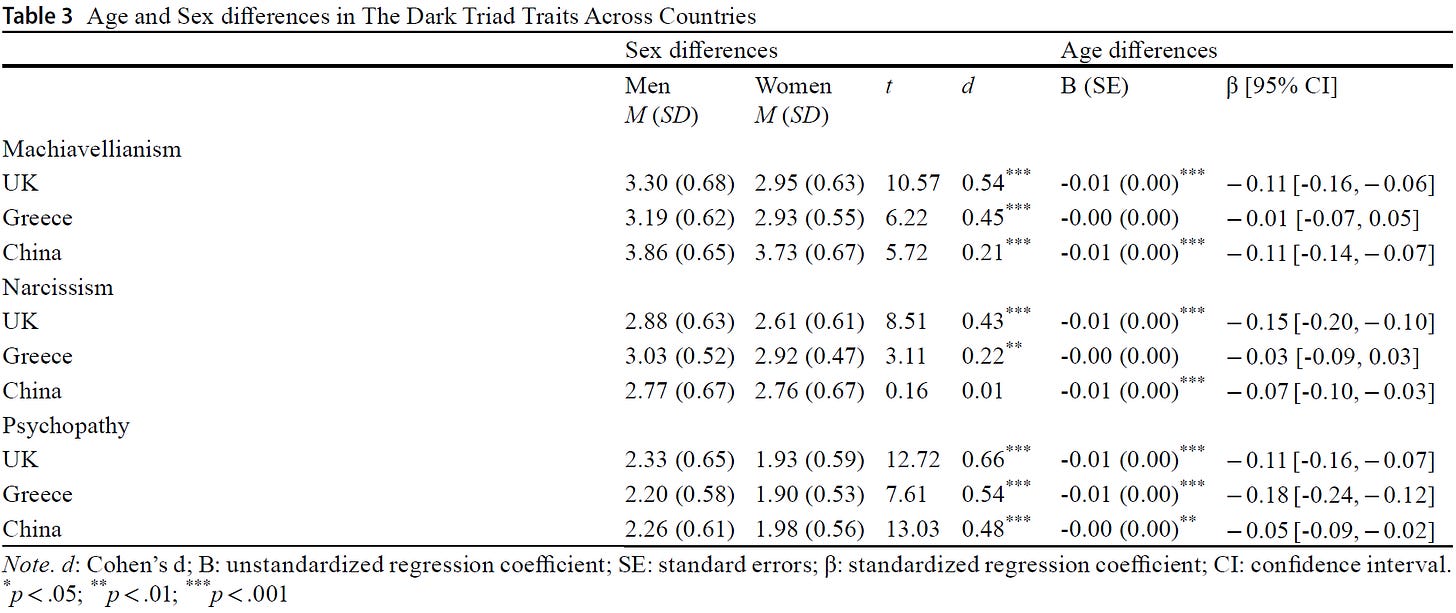12 Things Everyone Should Know About the Dark Triad
The science of narcissism, Machiavellianism, and psychopathy - and how they shape the world

This is the latest post in my “12 Things Everyone Should Know” series. You can access the full collection here.
In this installment, we turn to the darker side of human nature. Psychologists use the term “Dark Triad” to refer to three unsettling but fascinating personality traits: narcissism, Machiavellianism, and psychopathy. These traits aren’t just found in serial killers or movie villains. In their milder forms, they’re found everywhere: in colleagues who take credit for your work, politicians who’ll say anything to get ahead, and friends and lovers who charm you when it suits them but discard you on a whim. In what follows, we’ll explore twelve things everyone should know about the Dark Triad traits: how they differ between the sexes, the extent to which they’re shaped by nature vs. nurture, and how they influence everything from careers and dating to crime, online trolling, and even activism.
1. Beneath the Surface, the Dark Triad Shares a Dark Core
The Dark Triad is a collection of personality traits associated with unethical and socially aversive behavior:
Narcissism: grandiosity, entitlement, self-absorption, and an insatiable need for admiration.
Machiavellianism: strategic manipulation, emotional detachment, and a cynical view of human nature.
Psychopathy: callousness, impulsivity, lack of remorse, and a taste for risk and rule-breaking.
Although each of these traits is distinct enough to study separately, they also correlate with one another to some degree: If you’re high in one, you’re more likely to be high in the others. That’s because they all share a common core: callous manipulativeness.

2. Men and Young People Score Higher on the Dark Triad
On average, men score higher than women on the Dark Triad traits: They’re more narcissistic, Machiavellian, and psychopathic. At the same time, young people score higher than older people: The three traits peak in early adulthood, then steadily decline with age.

Interestingly, age differences in the Dark Triad often dwarf sex differences. So, for example, while men are somewhat more Machiavellian than women at every age, young women are far more Machiavellian than middle-aged men.


